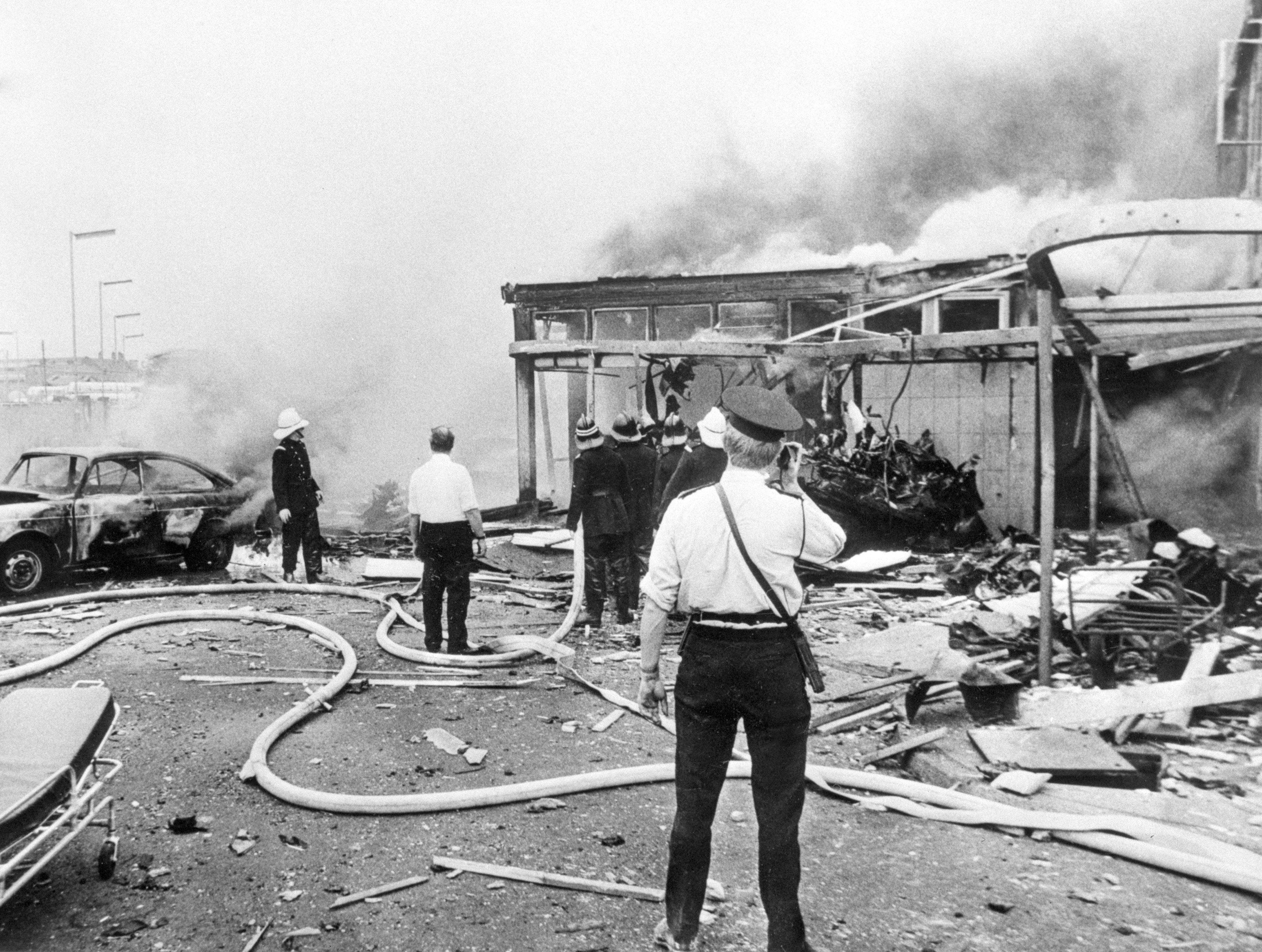Bloody Friday atrocity ‘has been forgotten’ – victim’s daughter
Nine people were killed and 130 injured on July 21, 1972 in a series of bombs planted across Belfast by the IRA

Your support helps us to tell the story
From reproductive rights to climate change to Big Tech, The Independent is on the ground when the story is developing. Whether it's investigating the financials of Elon Musk's pro-Trump PAC or producing our latest documentary, 'The A Word', which shines a light on the American women fighting for reproductive rights, we know how important it is to parse out the facts from the messaging.
At such a critical moment in US history, we need reporters on the ground. Your donation allows us to keep sending journalists to speak to both sides of the story.
The Independent is trusted by Americans across the entire political spectrum. And unlike many other quality news outlets, we choose not to lock Americans out of our reporting and analysis with paywalls. We believe quality journalism should be available to everyone, paid for by those who can afford it.
Your support makes all the difference.The daughter of a man killed in a series of bombings in Belfast said she feels like both he and the atrocity has been forgotten.
Lynda Van Cuylenberg’s father Jackie Gibson, who was 45 and a bus driver, was one of nine people killed in a series of bombs planted across the city by the IRA on July 21, 1972, a day which later became known as Bloody Friday.
She spoke of her sadness that nothing had been planned to mark the 50th anniversary of the atrocity later this year.
Ms Van Cuylenberg said she wrote to Belfast City Council earlier this year to ask how the anniversary was to be marked, but did not receive a response.
“This year in July marks 50th anniversary of Bloody Friday, we as a family still have had no justice for our father’s murder,” she said.
“We have actually been forgotten. I naively believed when I emailed Belfast City Hall in January this year inquiring about what was going to take place for the 50th anniversary, I would get a response. Afterall my father was one of the innocent victims murdered that day.
“I am still waiting to hear from them.
Following an intervention by the victims group SEFF, the DUP has since brought forward proposals to commemorate the anniversary, which was backed by all parties on the council apart from Sinn Fein.
Ms Van Cuylenberg said she also wrote to Ulsterbus to ask the same question, but has not received a reply.
“Bloody Friday has been forgotten by all, apart from the victim’s family and survivors,” she added.
She was just 15 and recently returned from a Girls Brigade trip to the Isle of Man on the day her father was killed, and saw him in his bus driving past just hours before he died.
She said her childhood ended that day, and described constant worry and panic attacks since then.
Ms Van Cuylenberg was speaking at an event to mark European Day of Remembrance for Victims of Terrorism at the La Mon Hotel on the outskirts of East Belfast.
She was among four people who shared their stories in the event attended by more than 100 victims and survivors.
The other speakers included Danny O’Reilly, whose father Tony O’Reilly and uncle Myles O’Reilly were shot dead in their own pub, The Golden Pheasant in Co Antrim before it was blown up by the Ulster Volunteer Force in 1976.
Sandra Harrison, whose brother Alan Johnston, a part-time UDR soldier, was killed by the IRA in 1988 and Wendy Burns, whose grandfather William Burns, a prison officer, was killed by Loyalists in 1980.
A number of politicians, including TUV leader Jim Allister, DUP MLA Mervyn Storey, UUP MLA Mike Nesbitt and SDLP MLA Dolores Kelly were also in attendance.
Mr Allister previously organised events to mark the day at Stormont, and said it was moved to La Mon due to numbers.
He described the location as poignant as the site of an IRA bomb attack which killed 12 people on February 17, 1978.
Kenny Donaldson, spokesman for Innocent Victims United, said the event was an important opportunity for people with different backgrounds and experiences to come together in a show of solidarity.